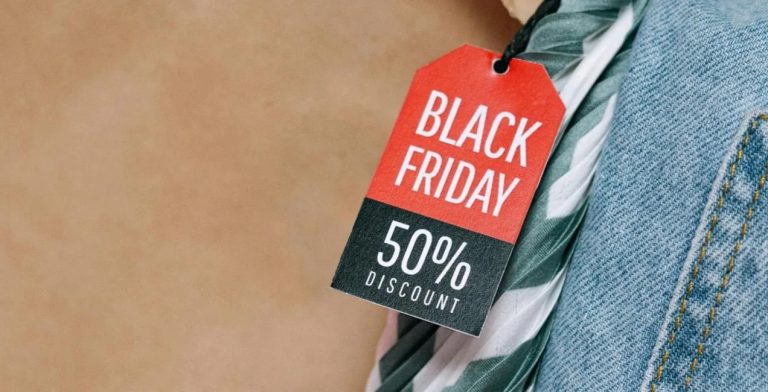
Mehtab Bhogal is the co-founder of Karta Ventures, a Canada-based acquirer of troubled ecommerce businesses. The firm seeks companies with “issues,” such as unpaid taxes, regulatory problems, and founder disputes.
He says buying distressed companies is like salvaging a crashed car. “What are the parts worth?” he asks.
Mehtab and I recently spoke. He addressed identifying hidden value, turnaround tactics, seller concerns, and more.
The entire audio of our conversation is embedded below. The transcript is edited for clarity and length.
Eric Bandholz: Give us a quick rundown.
Mehtab Bhogal: I’m the co-founder of Karta Ventures. We invest in consumer brands in distressed situations, such as tax issues, regulatory problems, founder disputes, things like that. We move fast and write checks quickly. Our portfolio ranges from a direct-to-consumer succulent plant farm to traditional apparel companies.
Early on, we invested in companies with both income statement and balance sheet problems. Now, I prefer one or the other. We focus on size. We will shrink a company if necessary. An optimal size for us is scaling businesses down to $15-$20 million in annual D2C revenue if we’re buying them outright.
For example, we looked at a retailer once that had peaked at $110 million, was doing $70 million, but we believed it operated most profitably at $30–$40 million in revenue.
Bandholz: How do you find the right deals?
Bhogal: In 2018, when we began, we sent cold emails to over 2,000 companies. We used BuiltWith to analyze tech stacks and backends to estimate revenue. From there, we targeted businesses generating a few million annually. Most of our deal flow now comes from word of mouth, especially since other investors tend to avoid turnarounds.
We also invest in profitable companies with big projects. One company needed help building a new manufacturing facility, which we’re good at. If there’s value to unlock, we’re interested.
Buying distressed companies is like salvaging a crashed car: What are the parts worth, and what could a skilled mechanic do with them? We sometimes acquire the right to buy equity before full diligence. That lets us move quickly, cut costs, and create breathing room while we dig deeper. We often reduce expenses by six to seven figures within a week or so. Meanwhile, we gain insights, and the existing management determines if they want to work with us.
Bandholz: How can you make those cuts in a single week?
Bhogal: It’s all about context. We can usually tell whether growth came from good marketing or a great product.
For example, I know a founder doing 30% net margins on $30-40 million in annual revenue. He has no idea what he’s doing on the ecommerce side. But his product is incredible — strong patents, hard to copy, perfect market fit. That’s why it works.
We’ve developed pattern recognition from working with many companies. We spot inefficiencies quickly, such as bloated teams, sloppy ad accounts, and underutilized staff. For instance, if a company needs only four raw materials, why does it have an entire supply chain team?
Or why does a CFO at a $20 million company have a huge support staff?
Founders are sometimes great at marketing but weak at finance or operations. I can log into a Google Ads account and quickly see if targeting and spend are optimized. That’s the type of stuff we jump on fast.
Bandholz: Is your goal to flip a business or hold it?
Bhogal: It depends. Sometimes we buy the business outright; other times we invest as minority shareholders with no control — both models work for us.
Take the succulent plant business we invested in back in 2018. We helped restructure debt, acquired a farm to integrate vertically, and began growing and shipping plants ourselves from Riverside, California. We’ve held that position and won’t exit unless the founder wants to. That was our agreement — get our cash out in one to two years and go from there.
Other founders want to optimize and sell in 6-12 months. That works too. The key is alignment: Everyone should have the same end goal and roadmap. If those are in place, things rarely go wrong.
Bandholz: What’s your daily focus — researching deals or operating businesses?
Bhogal: We’re hands-on. We teach teams how to manage recurring tasks. But for one-off strategic decisions, such as evaluating whether to use a 3PL or in-house fulfillment, we’re directly involved. The same goes for setting up manufacturing or optimizing marketing. We’ve performed those analyses so many times that we can quickly run the numbers.
We don’t want to be in the weeds long-term, but we’ll dive in initially to gain clarity and speed things up. We want the company to operate without needing our daily involvement. But we’re very engaged for the first few months.
Bandholz: How should founders evaluate debt financing?
Bhogal: First, understand the deal. Model your payments and liabilities. Know if there’s a personal guarantee, if the loan is secured, and what happens if revenue dips. Research lenders on PACER to review their legal history — some are reputable, others not so much. Ecommerce lenders, in particular, can be volatile. Many raised venture money and spent it recklessly.
Ask yourself: Where is this lender getting its money? Is it sustainable, or will its problems become yours in a downturn? In uncertain consumer markets, flexibility matters. We’d rather pay more for a dependable, traditional lender than risk a deal that could backfire if the economy shifts.
Bandholz: Where can people contact you?
Bhogal: Our site is KartaVentures.com. I’m on X and LinkedIn.





